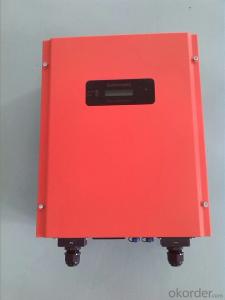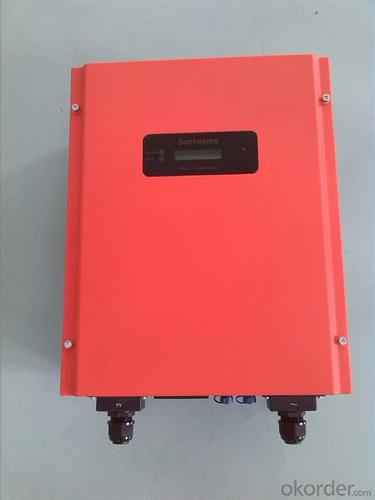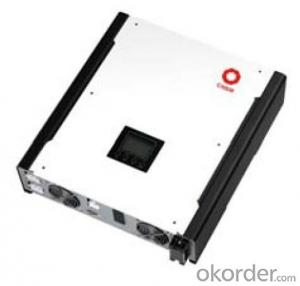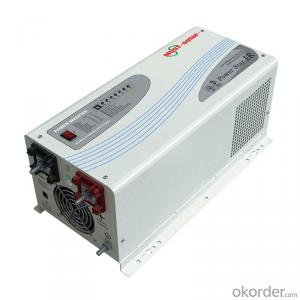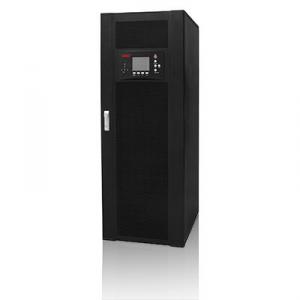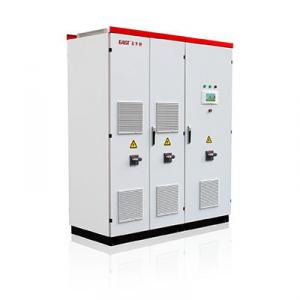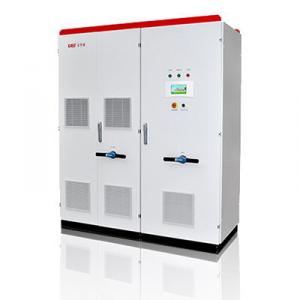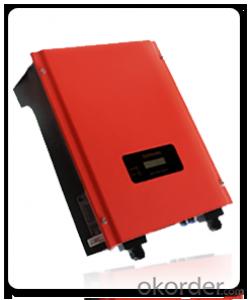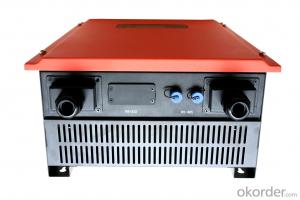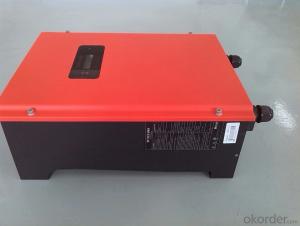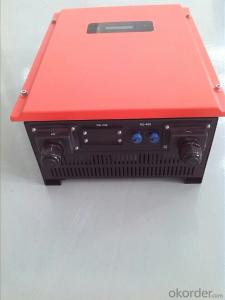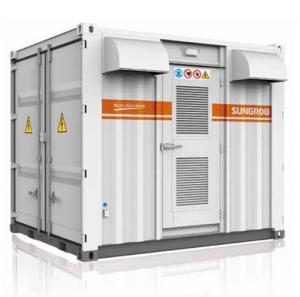Solar Inverter 100 Watt On-Grid Inverter Sunteams 3600/4000/5000
- Loading Port:
- China Main Port
- Payment Terms:
- TT OR LC
- Min Order Qty:
- -
- Supply Capability:
- -
OKorder Service Pledge
Quality Product, Order Online Tracking, Timely Delivery
OKorder Financial Service
Credit Rating, Credit Services, Credit Purchasing
You Might Also Like
The Sunteams 1500 ~5000 series is applicable to various rooftops and small scale photovoltaic grid-
connected power plants. Their nominal output powers are 1.5 kW, 2 kW, 2.5 kW,
3 kW, 3.6 kW, 4 kW and 5kW respectively.
This series is transformerless and has a wide range of MPPT input voltage. Its maximum conversion efficiency and MPPT tracking accuracy
reach 97.6 % and 99.5 % respectively. The maximum DC voltage reaches 550 V. Its multilingual LCD display facilitates easy operation. It ha
s waterproof direct plug-in terminals. It has overvoltage, islanding, short-
circuit, overloading and overheating protection functions. Its IP65 protection degree will ensure it runs well in various tough environments
- Q: Can a solar inverter be used in regions with high levels of lightning activity?
- Yes, a solar inverter can be used in regions with high levels of lightning activity. However, it is important to install appropriate lightning protection measures to ensure the safety and functionality of the solar inverter system. This can include surge protection devices and grounding systems to mitigate potential damage caused by lightning strikes.
- Q: Can a solar inverter be integrated with energy management systems?
- Yes, a solar inverter can be integrated with energy management systems. By connecting a solar inverter to an energy management system, it allows for better monitoring, control, and optimization of the solar power generated. This integration enables efficient management of energy consumption, storage, and distribution, leading to increased energy efficiency and cost savings.
- Q: Can a solar inverter be integrated with a smart home system?
- Yes, a solar inverter can be integrated with a smart home system. By connecting the solar inverter to the smart home system, users can monitor and control their solar energy production and consumption remotely. This integration allows for better energy management, optimizing the use of solar power, and potentially saving on electricity bills.
- Q: Can a solar inverter be used with different battery chemistries?
- Yes, a solar inverter can be used with different battery chemistries as long as the voltage and capacity of the batteries are compatible with the inverter's specifications. However, it's important to note that different battery chemistries may have varying charging and discharging characteristics, so it is advisable to consult the manufacturer's guidelines to ensure optimal performance and safety.
- Q: Can a solar inverter be used in conjunction with a power optimizer?
- Yes, a solar inverter can be used in conjunction with a power optimizer. In fact, this combination is commonly used in solar power systems to optimize energy production. The power optimizer helps maximize the performance of each individual solar panel by adjusting the voltage and current levels, while the solar inverter converts the DC electricity produced by the panels into usable AC electricity for the grid. Together, they enhance the overall efficiency and output of the solar system.
- Q: What is the importance of voltage and frequency control in a solar inverter?
- Voltage and frequency control are crucial in a solar inverter as they ensure the stability and reliability of the electrical system. Voltage control regulates the output voltage of the inverter, ensuring it is within safe limits and compatible with the grid or the connected appliances. This is important to protect the electrical devices from overvoltage or undervoltage conditions, which could potentially damage them. Frequency control, on the other hand, maintains the output frequency of the inverter in synchronization with the grid frequency. This synchronization is vital for the seamless integration of the solar power into the existing electrical grid. Inconsistent frequencies can lead to instability, power quality issues, and potential damage to equipment. Overall, voltage and frequency control in a solar inverter play a significant role in maintaining a reliable and efficient electrical system, safeguarding the connected appliances, and ensuring the proper integration of solar power into the grid.
- Q: How does a solar inverter affect the voltage stability of a solar system?
- A solar inverter plays a crucial role in maintaining voltage stability in a solar system. It converts the direct current (DC) generated by solar panels into alternating current (AC) suitable for use in homes and businesses. By monitoring and adjusting voltage levels, a solar inverter ensures that the power output remains consistent and within acceptable limits. This helps to prevent voltage fluctuations, voltage drops, and other electrical instabilities, ensuring a stable and reliable power supply from the solar system.
- Q: Can a solar inverter be connected to a battery backup system?
- Yes, a solar inverter can be connected to a battery backup system. This allows for the excess solar energy generated during the day to be stored in the batteries for use during times when there is less sunlight or during power outages.
- Q: How does a solar inverter handle voltage dips or surges in the grid?
- A solar inverter handles voltage dips or surges in the grid by incorporating various protective mechanisms. During a voltage dip, the inverter's control system detects the change and adjusts its power output accordingly to maintain a stable voltage and frequency. It may also utilize energy storage systems to compensate for the temporary drop in grid voltage. In the case of voltage surges, the inverter employs surge protection devices to prevent damage to the system. Additionally, advanced inverters may have built-in voltage regulation capabilities to stabilize the output voltage even during significant fluctuations in the grid.
- Q: Can a solar inverter be used with different types of communication interfaces?
- Yes, a solar inverter can be used with different types of communication interfaces. Most modern solar inverters are designed to be compatible with various communication protocols such as RS485, Wi-Fi, Bluetooth, Ethernet, and even cellular data. This flexibility allows the solar inverter to be integrated into different monitoring and control systems, making it easier to monitor and manage the solar power generation.
Send your message to us
Solar Inverter 100 Watt On-Grid Inverter Sunteams 3600/4000/5000
- Loading Port:
- China Main Port
- Payment Terms:
- TT OR LC
- Min Order Qty:
- -
- Supply Capability:
- -
OKorder Service Pledge
Quality Product, Order Online Tracking, Timely Delivery
OKorder Financial Service
Credit Rating, Credit Services, Credit Purchasing
Similar products
Hot products
Hot Searches
Related keywords
